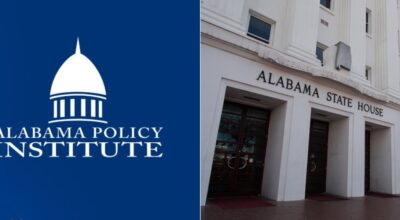Public has a right to know all the facts
Published 5:20 pm Tuesday, December 20, 2011
We are glad Dr. Danny Hood’s recent legal issues are now behind him. He is a valued and important member of this community and has made significant contributions to the wellbeing of those who live here.
We sincerely hope that Dr. Hood’s acquittal means that he was not driving while intoxicated, the charge made by the arresting officer. Unfortunately for Dr. Hood, the manner in which the case was tried and decided allows speculation that could have been avoided.
As is well known, criminal cases can be lawfully decided by courts based on what the public calls “technicalities.” For example, some DUI cases are dismissed based on constitutional grounds relating to the stop of a defendant’s vehicle by the arresting officer. If that stop was not legal, then the arrest is also illegal and the defendant is acquitted regardless of whether he or she was actually driving while intoxicated at the time.
We certainly do not suggest that was the situation in Dr. Hood’s case. But we are troubled by the fact the case was decided by the judge based on a set of facts to which the district attorney and Dr. Hood’s attorney stipulated, and that are not contained in the official court file. Moreover, the judge failed to make any written findings of fact or otherwise explain his decision in the written order he issued.
As a result, we do not know the factual basis of his acquittal. We have made diligent efforts to learn this information from the judge as well as the district attorney so that it could be reported and thereby allay any misapprehensions by the public, but have not received any cooperation. We sincerely regret this for Dr. Hood, especially in his position as a caregiver who must have the trust of his patients and the public.
We would be remiss if we did not also address the curiously hostile reaction of the district attorney to our simple requests for information about this case. As is well known, alcohol-related deaths are still a major problem in this country, and our legislature has enacted strict laws attempting to combat these problems. Law enforcement is charged with arresting violators, hopefully before those violators kill innocent victims, and district attorneys are charged with prosecuting those violators and thereby keeping them off the streets.
Alabama law prohibits district attorneys from plea-bargaining cases against prominent or influential persons to a lesser offense, thereby assuring that all receive equal justice. Stipulating to an unwarranted acquittal would violate the spirit of that prohibition.
In order to avoid circumvention of this prohibition, and thereby protect the public, it is absolutely essential that a criminal prosecution for this or any other similar crime be fully transparent. The district attorney has a primary role in this regard, as does the judge. Any stipulations of fact or law made by the lawyers should be in writing and filed in the court file, and the judge’s ruling should explain his rationale in detail. This is essential for not only the public, but the defendant.
When this is not done, the district attorney certainly owes it to the public to set the record straight, which he has adamantly refused to do here.
It is troubling to us, as it should be to you, that District Attorney John Andrews refuses to comply with requests to release all the details regarding the case, specifically the stipulation document, which outlines the facts of the case agreed upon by Hood’s attorney and Andrews. The document led to Hood’s acquittal and, by law, is considered public information. The Advocate sought the information on behalf of its readers, to whom the information belongs. Andrews refused to provide the information telling the Advocate reporter “I am not going to give you any information on anything we are working on. If you want to sue the district attorney’s office, have at it.” This is inappropriate, unprofessional and not in the best interest of those he is elected to serve.
The Advocate is doing its job. Andrews should do his.
Compliance with requests for public information is, very simply, part of Andrews’ job. He is required to do so by law. If he is unwilling to do his job, and to follow the law, he should resign.




